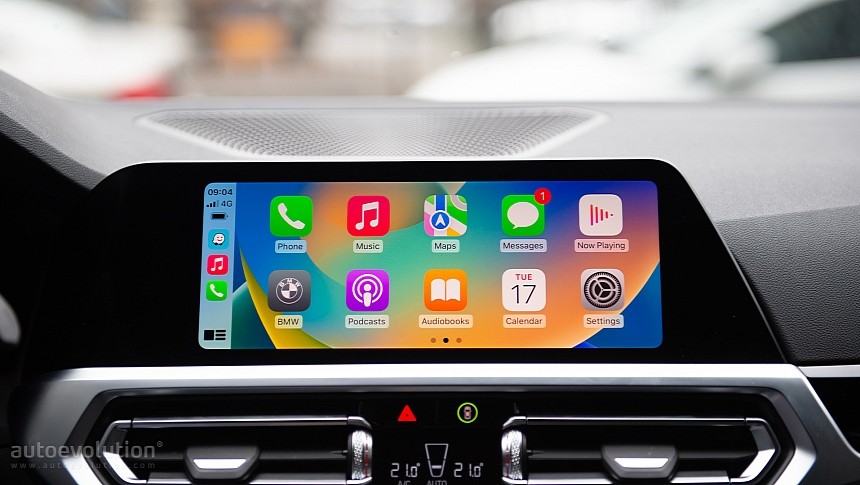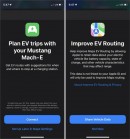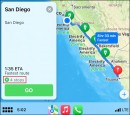Apple has just released iOS 17.1, the first major update for the main version that it shipped to the iPhone XS and newer in September.
The update comes with several notable changes for iPhone users, but for CarPlay adopters, it brings no big news. Unfortunately, instead of welcome improvements, iOS 17.1 comes with a sudden volume adjustment that causes the audio on CarPlay to be lower than before the update.
Users who updated to the new iOS version claim that everything is quieter on CarPlay, including the music, even though the level is very high. Unsurprisingly, many people believe it's a bug introduced by the new iOS update, but the culprit is a setting that Apple has apparently enabled by default in Apple Music.
The installation of iOS 17.1 somehow activates an Apple Music option that impacts the audio level on CarPlay, so users must disable it manually after the update.
The option is called Sound Check, and you can find it in Settings > Music. It's unclear why iOS 17.1 activates this setting by default, but Apple acknowledges that music in Apple Music might sound quiet when the Sound Check feature is activated.
Meanwhile, iOS 17.1 doesn't bring other improvements to the CarPlay experience, leaving users to struggle with a flood of problems, including GPS and connection glitches.
The GPS errors have been around since at least iOS 16, causing massive problems for popular applications like Google Maps and Waze. Due to the GPS inconsistency, users often get inaccurate navigation directions, as the apps can't determine their location. The navigation apps randomly locate users on the wrong street or in the middle of a field, so the on-screen directions are no longer accurate.
The connection glitches became more widespread when Apple introduced iOS 17. Users started complaining about glitches that were mostly common in the Android Auto world, with the iPhone 15 and its new USB-C port making things much worse.
iPhone 15 no longer uses a Lightning port but USB-C, the port that's already available on many other devices, including headphones, speakers, and Android devices. The USB-C adoption means users can no longer use their USB-A to Lightning cables to connect iPhones to the CarPlay head units. Choosing a USB-A to USB-C cord seems more challenging than expected, especially because low-quality cables are charge only and do not allow users to run CarPlay.
As a result, Apple users ended up struggling with the same problems as their Android Auto siblings, as they always must use high-speed cables for a seamless experience in the car. Apple has already started selling a USB-A to USB-C cable, but because most people try the cords they have at home, they eventually hit various problems, including random disconnects and charging problems while driving.
Users who updated to the new iOS version claim that everything is quieter on CarPlay, including the music, even though the level is very high. Unsurprisingly, many people believe it's a bug introduced by the new iOS update, but the culprit is a setting that Apple has apparently enabled by default in Apple Music.
The installation of iOS 17.1 somehow activates an Apple Music option that impacts the audio level on CarPlay, so users must disable it manually after the update.
The option is called Sound Check, and you can find it in Settings > Music. It's unclear why iOS 17.1 activates this setting by default, but Apple acknowledges that music in Apple Music might sound quiet when the Sound Check feature is activated.
Meanwhile, iOS 17.1 doesn't bring other improvements to the CarPlay experience, leaving users to struggle with a flood of problems, including GPS and connection glitches.
The GPS errors have been around since at least iOS 16, causing massive problems for popular applications like Google Maps and Waze. Due to the GPS inconsistency, users often get inaccurate navigation directions, as the apps can't determine their location. The navigation apps randomly locate users on the wrong street or in the middle of a field, so the on-screen directions are no longer accurate.
The connection glitches became more widespread when Apple introduced iOS 17. Users started complaining about glitches that were mostly common in the Android Auto world, with the iPhone 15 and its new USB-C port making things much worse.
iPhone 15 no longer uses a Lightning port but USB-C, the port that's already available on many other devices, including headphones, speakers, and Android devices. The USB-C adoption means users can no longer use their USB-A to Lightning cables to connect iPhones to the CarPlay head units. Choosing a USB-A to USB-C cord seems more challenging than expected, especially because low-quality cables are charge only and do not allow users to run CarPlay.
As a result, Apple users ended up struggling with the same problems as their Android Auto siblings, as they always must use high-speed cables for a seamless experience in the car. Apple has already started selling a USB-A to USB-C cable, but because most people try the cords they have at home, they eventually hit various problems, including random disconnects and charging problems while driving.






































